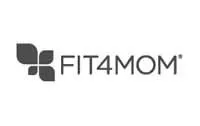Fitness franchise market overview
The global fitness franchise market is valued at approximately $87 billion in 2025 and is expected to grow annually by 3–4%, driven by rising health awareness, holistically focused wellness, and technology-enabled solutions. Fitness studios and gyms are rapidly adopting hybrid models, combining physical classes with digital platforms. Boutique fitness studios, micro-gyms, and specialized training programs (HIIT, Pilates, yoga, strength training) are among the fastest-growing segments. The gym membership model is evolving with an emphasis on subscription revenue, high retention rates, and personalized training experiences powered by fitness software and mobile booking apps.
How costs shift by region
- United States: The U.S. fitness franchise market dominates, with over 64 million gym memberships, generating around $33 billion in annual revenue. Lease rates for retail and commercial spaces vary from $20 to $60 per square foot annually depending on location. Labor costs for certified trainers and reception staff range from $15 to $35 per hour. Energy use for HVAC, lighting, and equipment significantly impacts utilities expenses.
- Canada: The market remains closely aligned with the U.S. in costs and trends, with growing demand for boutique fitness and wellness franchises. Rental spaces and labor costs slightly vary by province but remain competitive. Emphasis on instructor certifications and niche yoga/pilates studios is growing.
- Europe & UK: Fitness center franchise investments are impacted by higher rent (€40–90/m²/month) and more stringent labor/social regulations. Boutique and specialized studios dominate urban markets, with growing emphasis on sustainability and wellness integration.
- Gulf: Rapidly expanding fitness landscapes in UAE, Saudi Arabia, and Qatar emphasize luxury boutique studios and 24/7 access gyms. Lower labor costs contrast with premium rent, with growing demand for personal and group training.
- Asia-Pacific: The region shows dynamic growth, fueled by urban middle-class fitness adoption, suburban micro-gyms, and integration of digital fitness platforms. Rental costs and labor vary widely across countries, with increasing investment in energy-efficient equipment and fitness software.
Investment and Fees
| Format / Model | Initial investment (range) | Franchise fee (range) | Ongoing fees (royalty / ad fund) |
|---|---|---|---|
| Boutique fitness studio (Pilates, HIIT, cycling) | $150,000 – $400,000 | $20,000 – $50,000 | 6–8% / 2–3% |
| Full-size gym / fitness center | $400,000 – $1,200,000 | $35,000 – $90,000 | 5–7% / 2–4% |
| 24/7 access gym (unmanned/hybrid staffing) | $200,000 – $600,000 | $15,000 – $40,000 | 6–8% / 1–2% |
| Multi-unit / regional fitness operator | $1,000,000 – $5,000,000 | $70,000 – $350,000 | 4–7% / 2–3% |
Investments cover leasehold improvements, fitness equipment packages (racks, treadmills, bikes), locker rooms, showers, HVAC systems, software licensing, branding, and marketing.
Startup and operating costs
Key costs include leasing or owning retail space, energy and utilities (notably HVAC and lighting), staffing qualified trainers and support personnel, fitness equipment acquisition and maintenance, subscription to booking and management software, and marketing for client acquisition and retention.
Popular fitness franchise formats
- Boutique studios: Specialized classes with personal and group training focus—Pilates, cycling, HIIT.
- Full-size gyms: Comprehensive services including weight rooms, cardio, group classes, and wellness amenities.
- 24/7 gyms: Unmanned or hybrid-model gyms offering extended access, leveraging technology for security and member engagement.
- Multi-unit operators: Regional owners managing multiple gyms/franchises with centralized management and economies of scale.
Requirements & ideal franchisee profile
Ideal franchisees typically have $150,000–$1,200,000+ in capital, a passion for wellness, leadership in managing trainers and staff, and an understanding of local demographics. Certification and staff recruitment capabilities are critical for strong client retention.
Cost drivers and unit economics
Success depends on member acquisition and retention rates, efficient energy use, labor costs, and facility utilization. Subscription-based memberships and digital engagement enhance cash flow predictability. Competitive local markets require strong branding and superior member experiences.
How to choose a fitness franchise
- Evaluate the target market and preferred fitness model.
- Assess total investment and fee structures.
- Check franchise support for onboarding, training, and technology.
- Consider local demographics, rent levels, and competition.
- Review member satisfaction, retention rates, and revenue per member.
Looking to join the booming fitness industry? TopFranchise offers comprehensive listings of the best fitness franchise opportunities and gym fitness franchises for sale worldwide. Compare fitness franchise costs, formats, territories, and support to find the right fit for your business goals. Start your fitness franchise journey today with TopFranchise’s expert guidance and real-world data.



































































